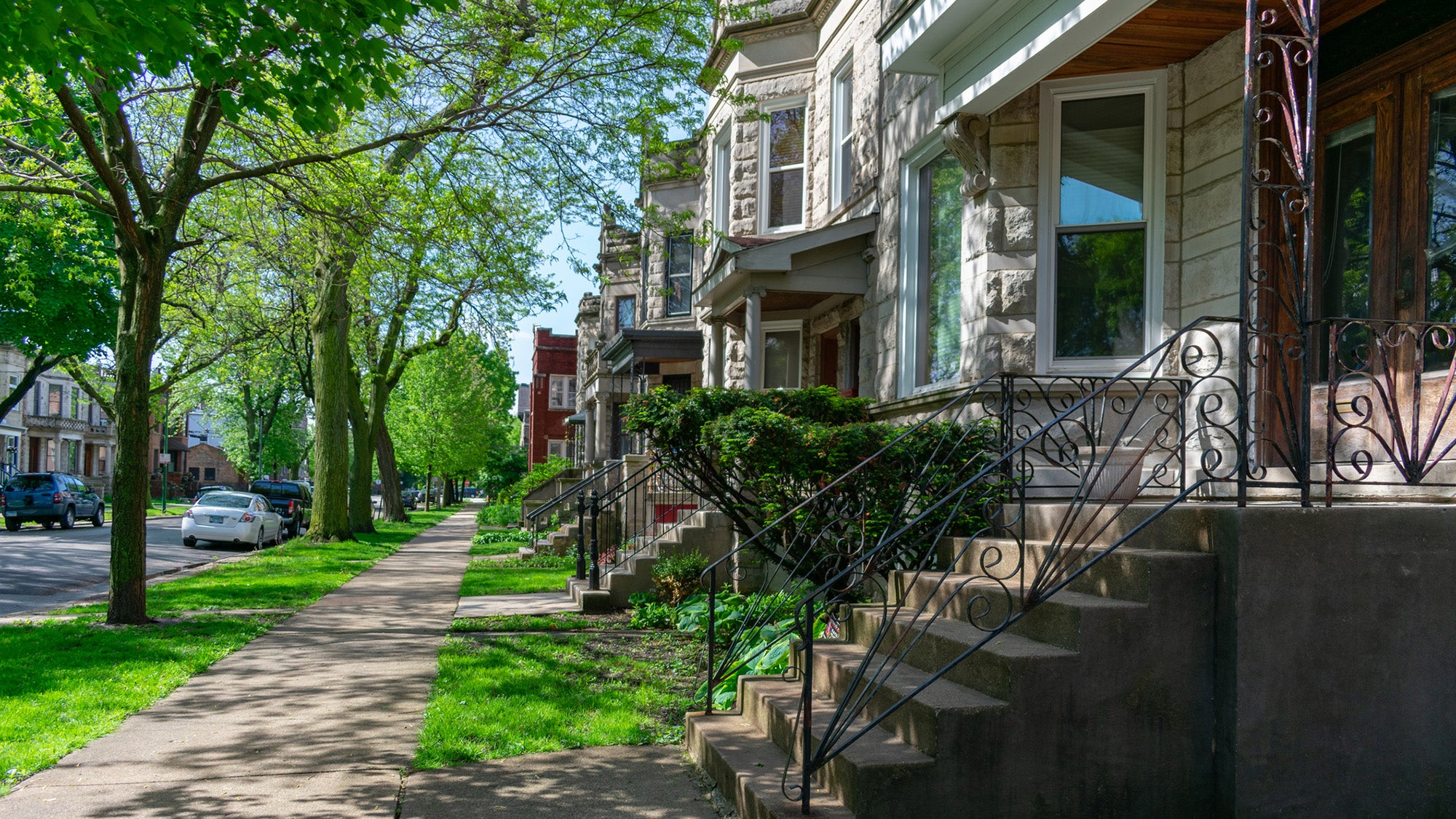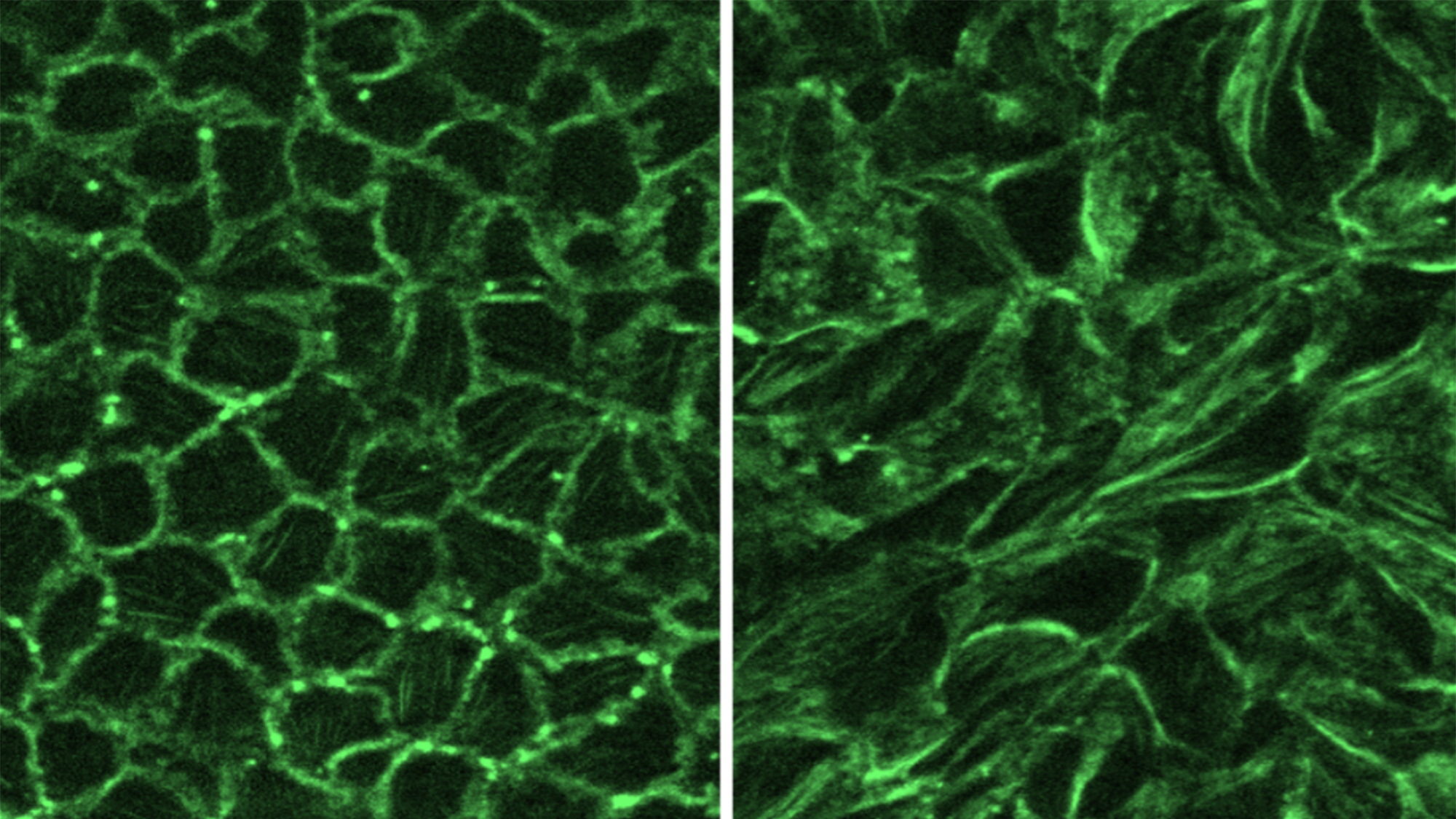Paid Practicum Opportunity for Harvard Chan Students
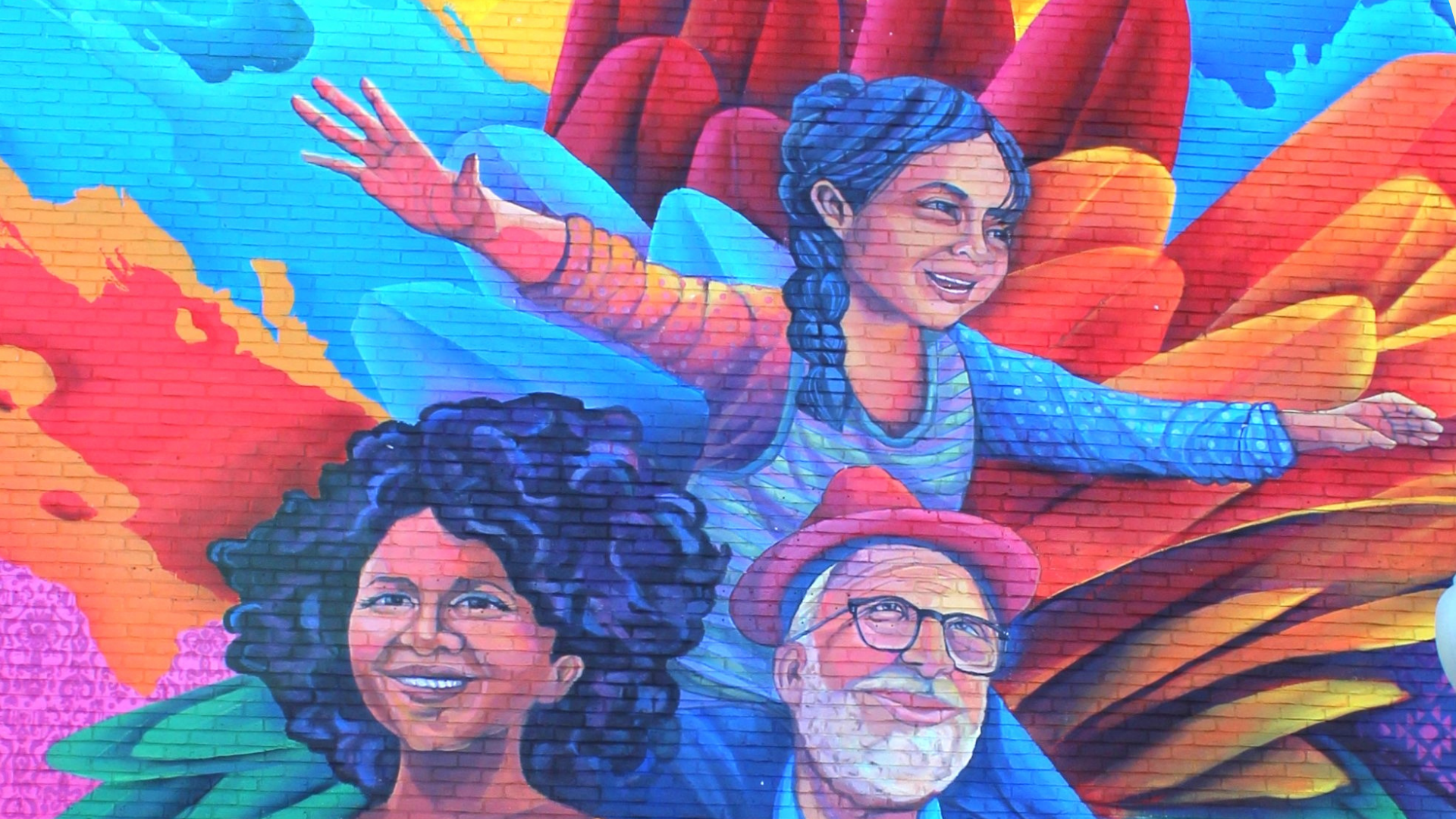
Harvard Chan MPH and SM students: complete your practicum this summer in a paid, community-based placement where you’ll apply your public health training, build data and evaluation skills, and deepen your understanding of social determinants of health.
Duration: 10 weeks in May-August, flexible start and end dates, 20 hours per week
East Boston Social Centers
We’re excited to share a practicum opportunity with the East Boston Social Centers (EBSC), a 100+ year-old community anchor serving East Boston, Chelsea, Revere, and Winthrop. This placement is ideal for an MPH student interested in community-based, equity-focused work with largely immigrant families. Depending on project needs and student interest, activities may include helping EBSC better understand and address social isolation by contributing to survey design and administration, assisting with analysis of participant data, supporting research on best practices in social connection and mental wellbeing, and helping to draft culturally responsive recommendations to strengthen programs across age groups. This practicum emphasizes hands-on engagement, data-informed program improvement, and work in a multi-generational setting. Applications are reviewed on a rolling basis.
GlamourGals
We’re also sharing a practicum opportunity with GlamourGals Foundation, a national nonprofit with a 25-year history of combating senior isolation through teen-led intergenerational programs. This role is a strong fit for an MPH student interested in program evaluation, qualitative methods, and the mental and social health impacts of social connection. Depending on the specific project, the student may contribute to qualitative analyses of program impact on seniors and teen volunteers, support development of a panel survey and outcome metrics, attend selected senior center visits to observe implementation and gather data, and participate in mentorship events alongside peers (including Cornell students). This practicum offers exposure to nonprofit leadership, intergenerational relationship-building, and real-world measurement of social and mental wellbeing. Applications are reviewed on a rolling basis.
Last Updated
2026 Summer Internship Applications Now Open
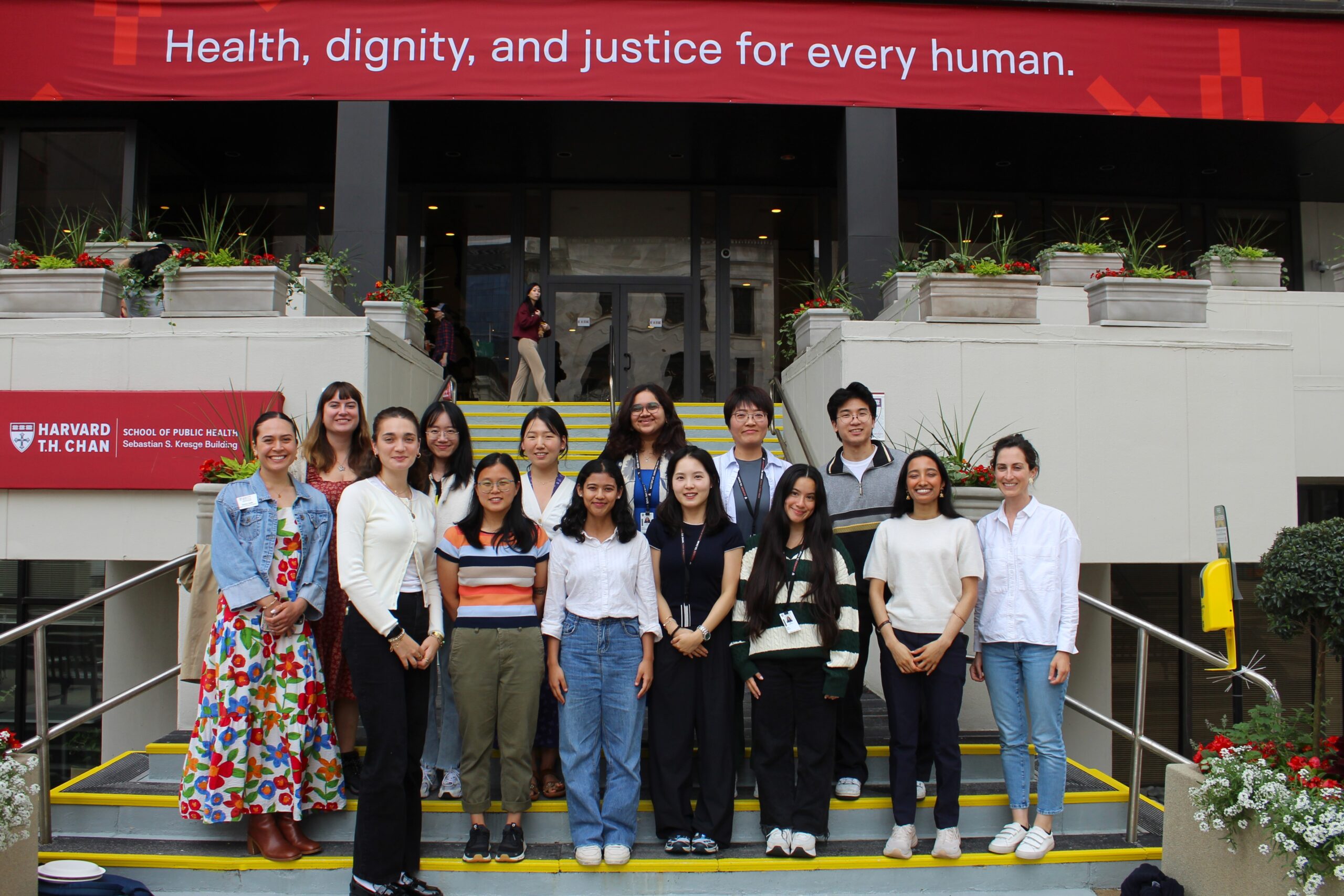
It’s that time of year again! Applications are now open for our 2026 Summer Internship Program. This paid, ten-week opportunity offers training and support to a future generation of scholars interested in studying (1) the linkages between physical, social, and mental health, and (2) the translation of science related to these linkages to inform policy and practice. Join us for a summer of research and growth alongside top positive health scholars!
Learn more from past interns by watching this video:
Then visit our Summer Internship webpage to find out if you’re eligible and apply today!
Last Updated
Happiness and Well-being in the Workplace: The Management Philosophy of the Lee Kum Kee Group
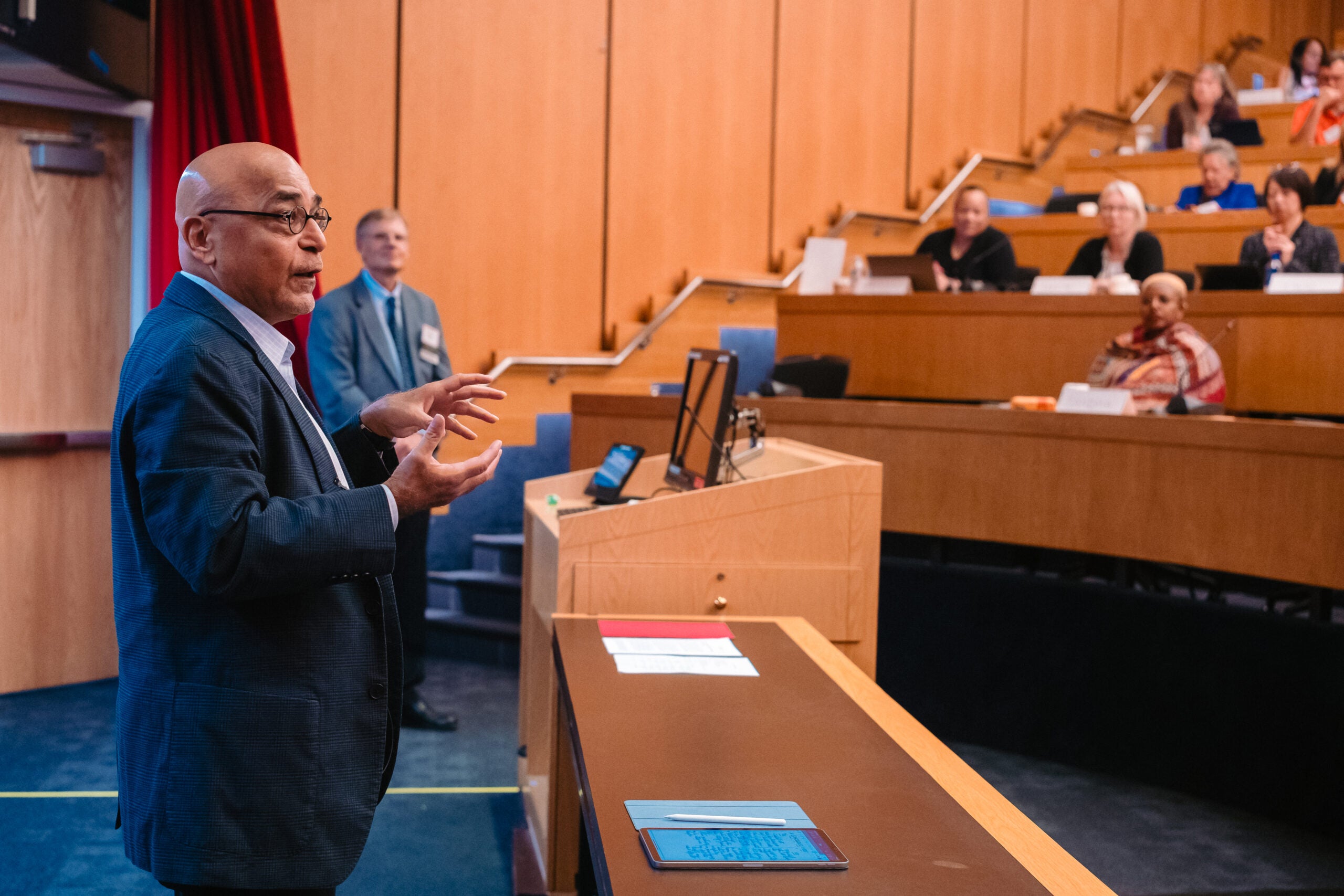
A new case study by Center Director Dr. K. “Vish” Viswanath examines the organizational philosophy of the Lee Kum Kee Group, a sixth-generation family-owned global enterprise based in the Hong Kong Special Administrative Region of China that operates in the Asian sauce and health products sectors. The case, introduced at the Harvard Chan School’s Alumni Symposium on September 27th, 2025, by Dr. Viswanath and Richard Siegrist, Senior Lecturer on Health Care Management, explores Lee Kum Kee’s focus on happiness and health via their guiding principle of “Si Li Ji Ren” — considering others’ interests before acting. Driven by a keen interest in the role of the workplace as an important setting for promoting positive health based on decades of rigorous research, Dr. Viswanath delves into the company’s practical application of Si Li Ji Ren through mission-driven initiatives, internal policies and programs, and external initiatives with vendors and clients.
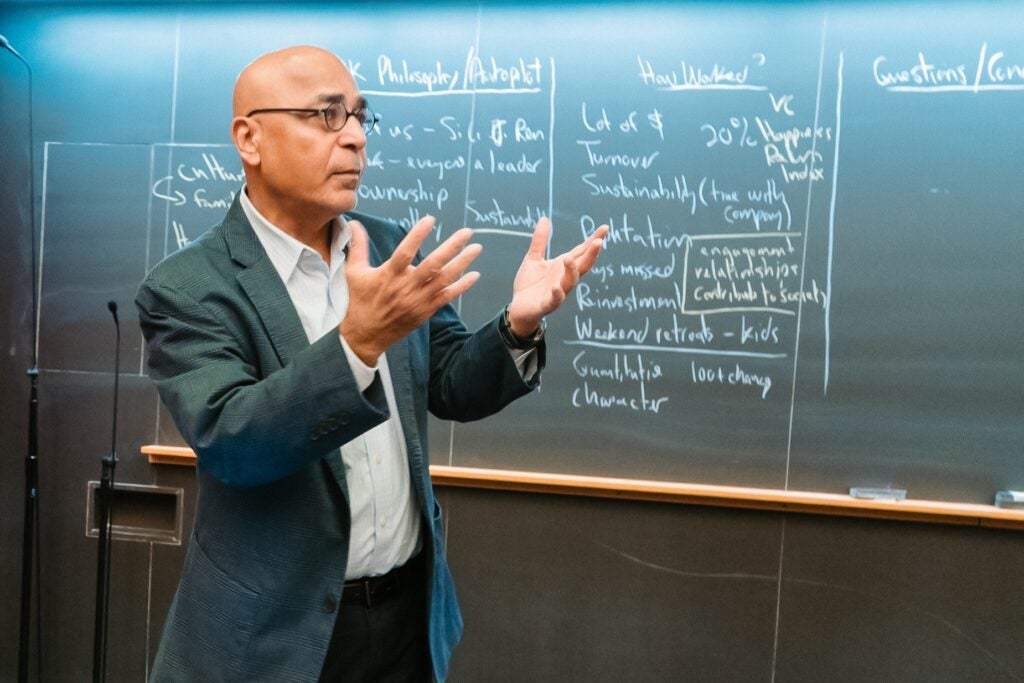
Lee Kum Kee conducts regular assessment of employee well-being through a “Happiness Index,” policies intended to encourage work-life balance, and leadership approaches such as the company’s “Autopilot Leadership Model®.” The company also promotes what it refers to as “Tri-Balance”—encouraging employees to consider their health, family, and work—as part of its organizational culture. According to company accounts, these practices were developed in response to previous business challenges and are intended to support both employee well-being and Lee Kum Kee’s performance.
Beyond internal operations, the case describes Lee Kum Kee’s external initiatives, such as the Global Youth Culinary Immersion and Hope as Chef programs, which provide educational opportunities for underprivileged youth, and its venture arm, Happiness Capital, which incorporates data-driven methods to evaluate investments based on measures of “happiness return.”
The case also critically considers whether Lee Kum Kee’s philosophy—so deeply rooted in Eastern, collectivist values—can take hold in Western, individualist contexts, inviting readers to consider how health, happiness, and profit might be reconciled, especially where individual achievement is prioritized. Dr. Viswanath’s research underscores the importance of cultural context, while encouraging further exploration around the role of the workplace for promoting collective health and well-being.
The case study and accompanying teaching guide are available for purchase on the Harvard Business Impact website here.
Last Updated
Learn from positive psychology expert Dr. Bettina Hoeppner
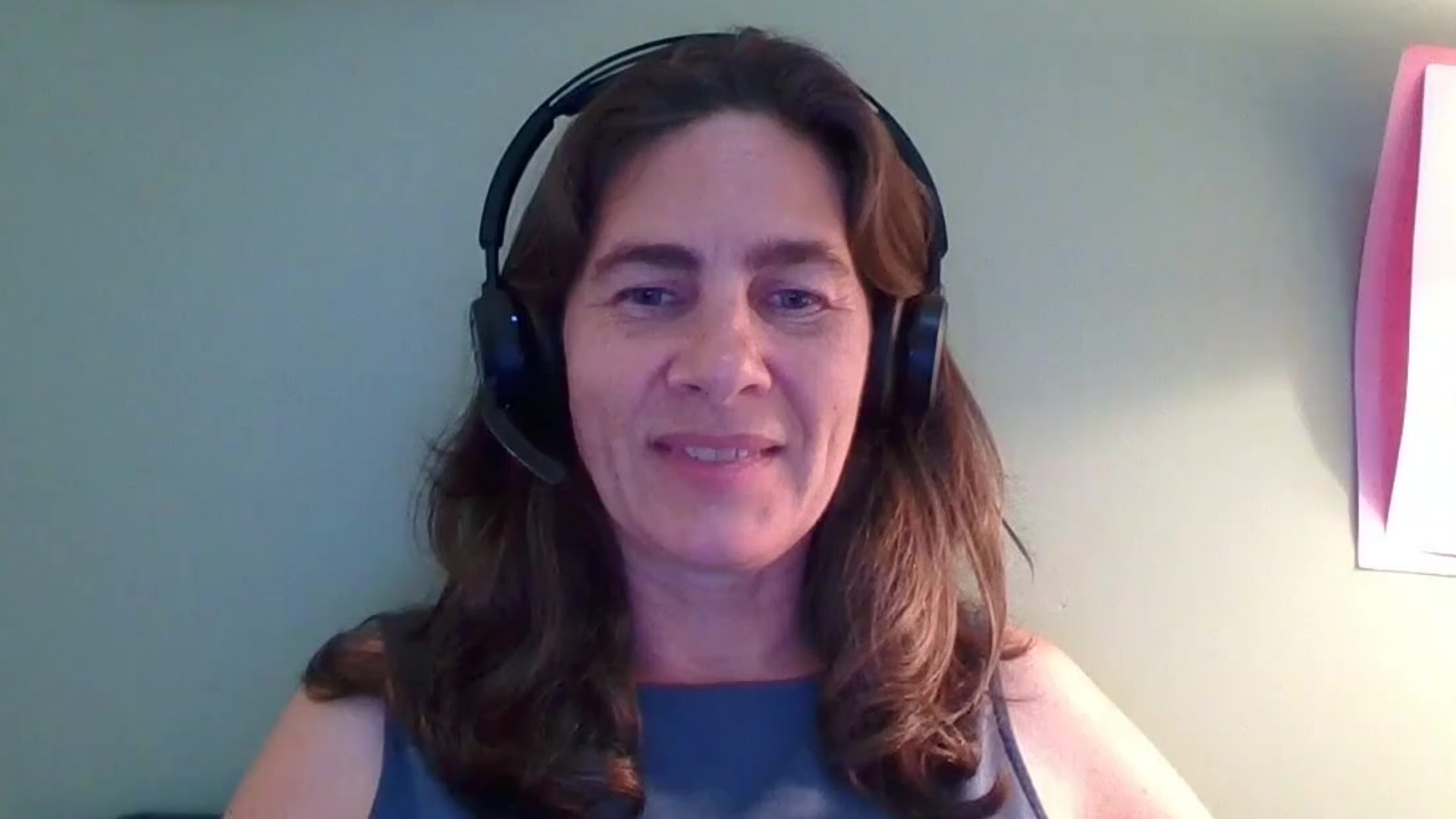
What is positive psychology? And how can we use it to improve our daily lives, especially in challenging times?
Learn the answers to these questions and more from Dr. Bettina Hoeppner, Associate Professor of Psychiatry at Harvard Medical School and Director of the Health through Flourishing Research Program at Massachusetts General Hospital.
This video is the fourth installment in a series of expert interviews designed to translate the science of health, happiness, and well-being to a broader audience. You can find the first three videos, which explore the topics of happiness, mindfulness, and collective well-being, on the Videos page of our website. Stay tuned for more to come!
Last Updated
Funding Opportunities Now Open
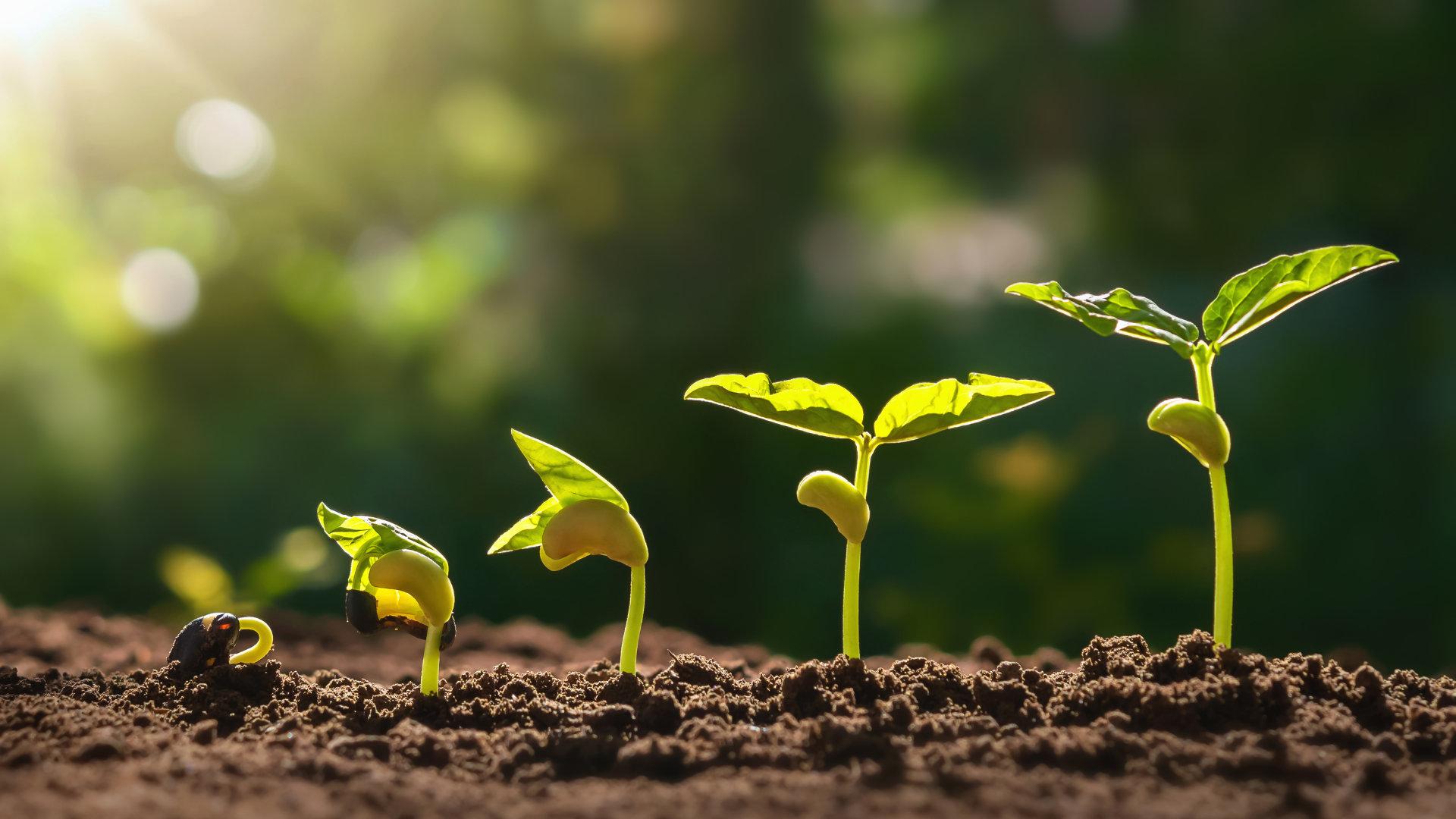
Funding Opportunity for Harvard Faculty and Research Scientists: Innovations in Positive Health Grant
The Innovations in Positive Health Grants support pioneering, early-stage research in positive health science or communication/translation sciences related to positive health, awarding up to $40,000 over one year to Harvard University faculty and research scientists working with a faculty PI. We encourage proposals that are interdisciplinary, open new areas of inquiry, or foster collaborations across schools or departments. Funds can be used for research staff, data collection, conference presentations, travel, and more, but not for faculty salary. Proposals are due by November 21st, 2025, and will be evaluated for scientific quality, cross-disciplinary innovation, and potential for generating preliminary data to leverage external funding.
Funding Opportunity for Harvard Doctoral Students:
Dissertation Research Award
The Center’s Dissertation Research Awards provide up to $2,500 over two years. Applicants must be full-time doctoral students at a Harvard graduate school, with an approved dissertation proposal and active dissertation work in positive health science—defined as the interdisciplinary study of physical, mental, and social factors contributing to well-being and happiness. The award funds innovative, asset-oriented projects from diverse disciplines, covering eligible expenses such as data collection, analysis, conference participation, and publication fees. Proposals are due by November 21st, 2025, and will be assessed for scientific quality, public health impact, and relevance to the Center’s mission.
Last Updated
Learn from happiness expert Dr. Robert Waldinger
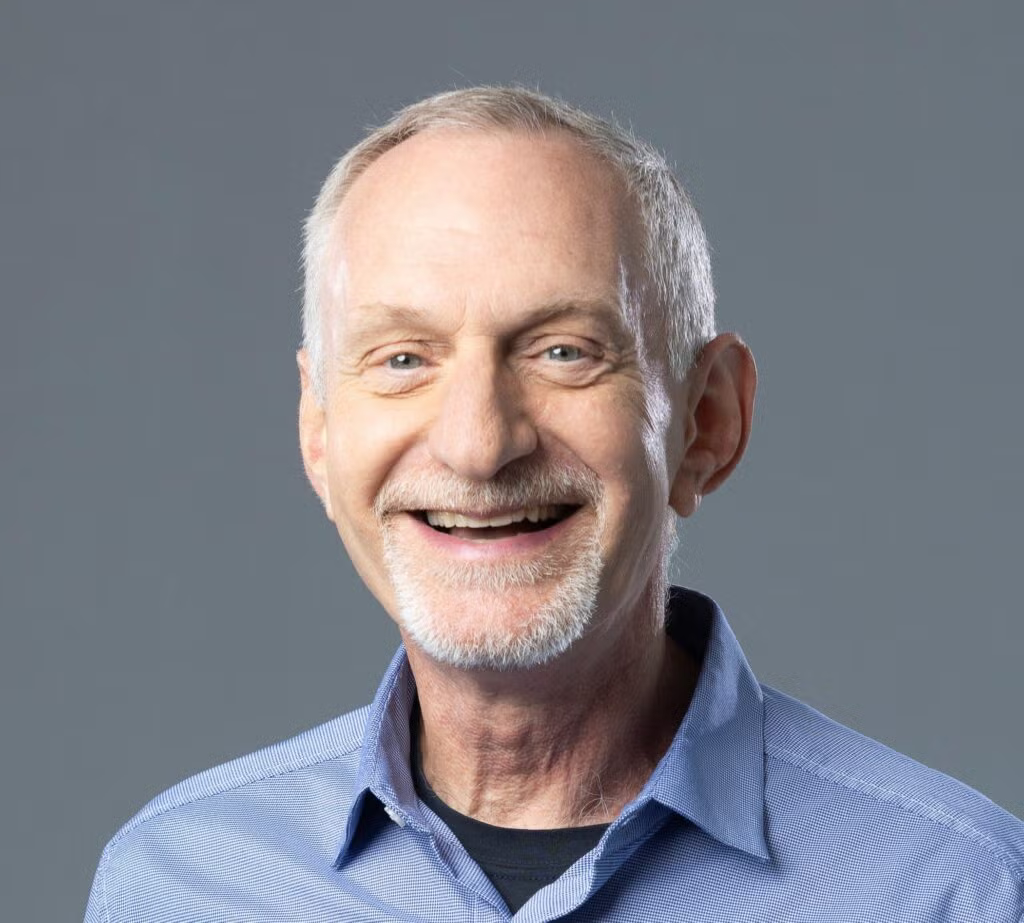
How do we define happiness? And how can it impact our social and physical health? Find out the answers from Dr. Robert Waldinger, Director of the Harvard Study of Adult Development, the longest scientific study of happiness ever conducted, and author of New York Times bestseller The Good Life, which shares the findings of the study. Dr. Waldinger is also Professor of Psychiatry at Harvard Medical School, a Zen priest, and a Center Affiliate Scientist.
This video is the first installment in a series of expert interviews designed to translate the science of health, happiness, and well-being to a broader audience. Future videos will feature other Center scholars and affiliates with expertise on topics relating closely to health and happiness, such as mindfulness, collective well-being, and positive psychology. These videos will be shared to our social media platforms (LinkedIn, Instagram, Facebook, and Bluesky) and YouTube channel. Stay tuned for more to come!
Last Updated
Launching Season 2 of Frontiers in Health & Happiness Podcast
Celebrate Earth Month with the Lee Kum Sheung Center for Health and Happiness by checking out season 2 of our Frontiers in Health & Happiness Podcast, “Environments for Health and Happiness!” This series will explore the intricate relationships between the natural and built environments and our health, happiness, and well-being. Episodes will feature diverse array of experts, including environmental health scientists, architects, and urban public health leaders– who you may recognize from this year’s seminar series of the same name. Join us as we highlight the transformative power of natural and built environments to improve quality of life and create happier, healthier, and more resilient communities.
In the first episode of our new series, we sit down with Dr. Gaurab Basu to discuss the significant impacts of climate change on mental, social, and physical health. Listen today to learn about the critical role of sustainable practices and climate education in health care, and explore the strong link between climate change and health equity.

Gaurab Basu, MD, MPH is a physician and assistant professor of medicine in the Division of Global Health Equity at Brigham and Women’s Hospital, and assistant professor of global health & social medicine at Harvard Medical School (HMS). At Harvard T.H. Chan School of Public Health, he is an assistant professor of environmental health and core faculty at the Center for Climate, Health, and the Global Environment (Harvard Chan C-CHANGE). His work focuses on the intersection of climate change, global health equity, human rights, medical education, and public policy.
Throughout the five-episode Environments for Health and Happiness series, new episodes will be released every two weeks. Subscribe to Frontiers in Health & Happiness on Spotify, Apple Podcasts, Amazon Music, or Pandora; or catch new episodes on our YouTube channel.
East Boston Seniors Seek Stronger Community Bonds
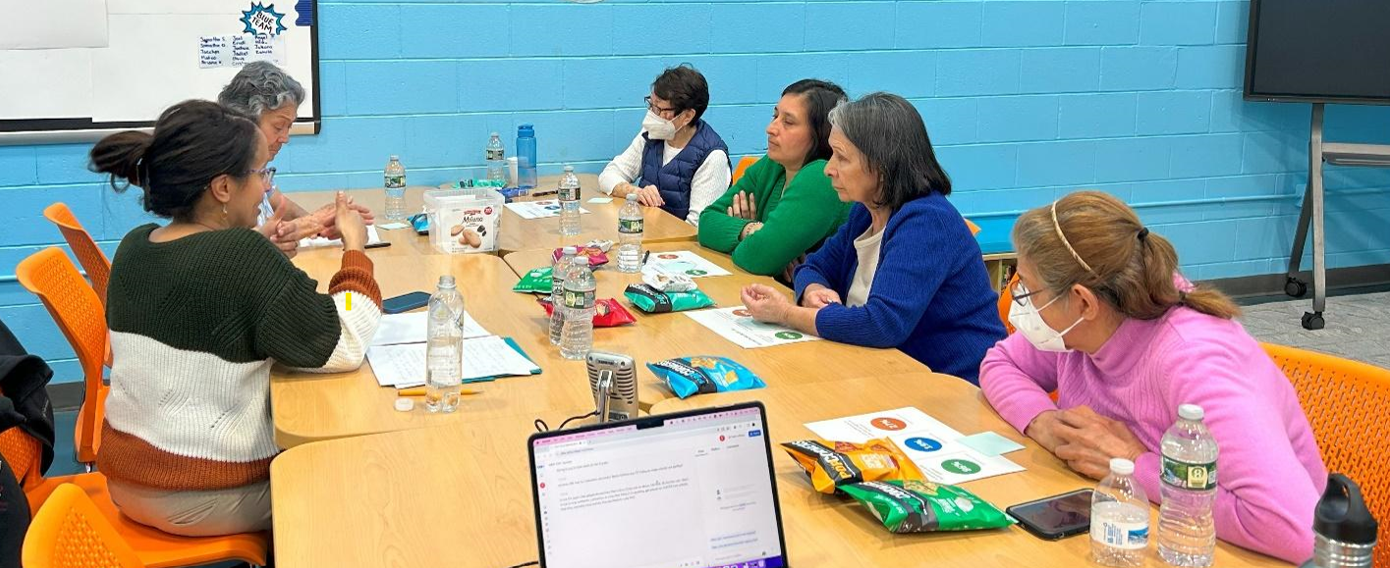
In February 2024, the East Boston Social Centers, a local community organization, led focus groups with older adults from their “Active Adults” program. These discussions revealed complex insights into community connection and loneliness among older residents. Loneliness is a pressing concern, and in 2023, the U.S. Surgeon General declared a national “epidemic of loneliness and isolation.” It’s important to understand how this issue is affecting East Boston.
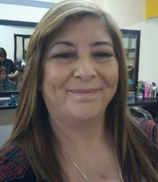
Founded over a century ago, the Social Centers support immigrant families through services like education, recreation, and social support. Their Active Adults program offers year-round activities to help adults 55 and older stay healthy and active. Senior Program Manager Dawn Panos leads the program, working to help East Boston seniors maintain community bonds and a high quality of life.
Under Executive Director Justin Pasquariello, the Social Centers launched a campaign to promote community joy. This sparked a partnership with the Lee Kum Sheung Center for Health and Happiness (LKS Center) at the Harvard T.H. Chan School of Public Health, which entered this relationship as part of Center Director Dr. K. “Vish” Viswanath’s initiative to promote community well-being and health equity.
Conducted as a collaborative effort between the Social Centers and the LKS Center, the focus groups were led by former Social Centers Director of Data and Evaluation Dr. Rosanna M. Batista and former LKS Center Research Assistant and Harvard Master of Public Health student Elaine Jeon.
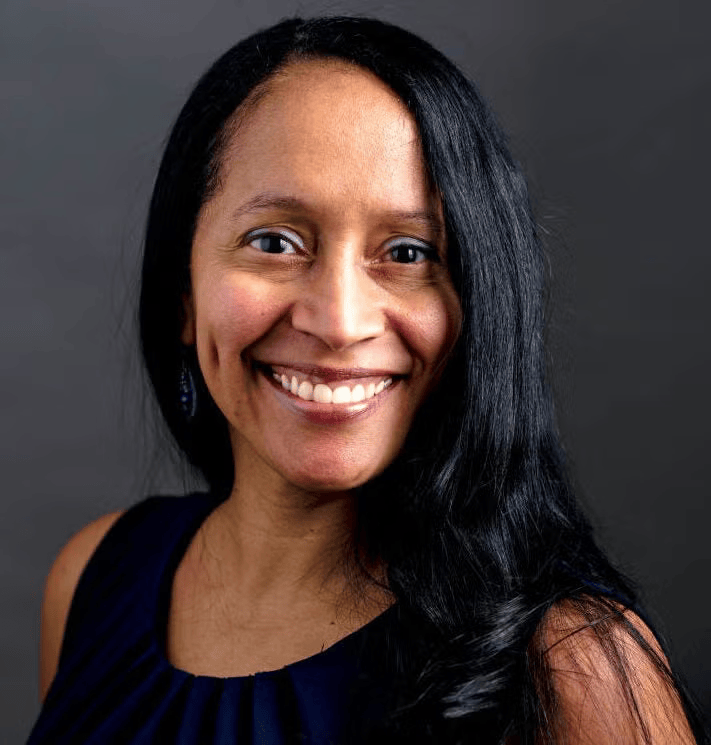
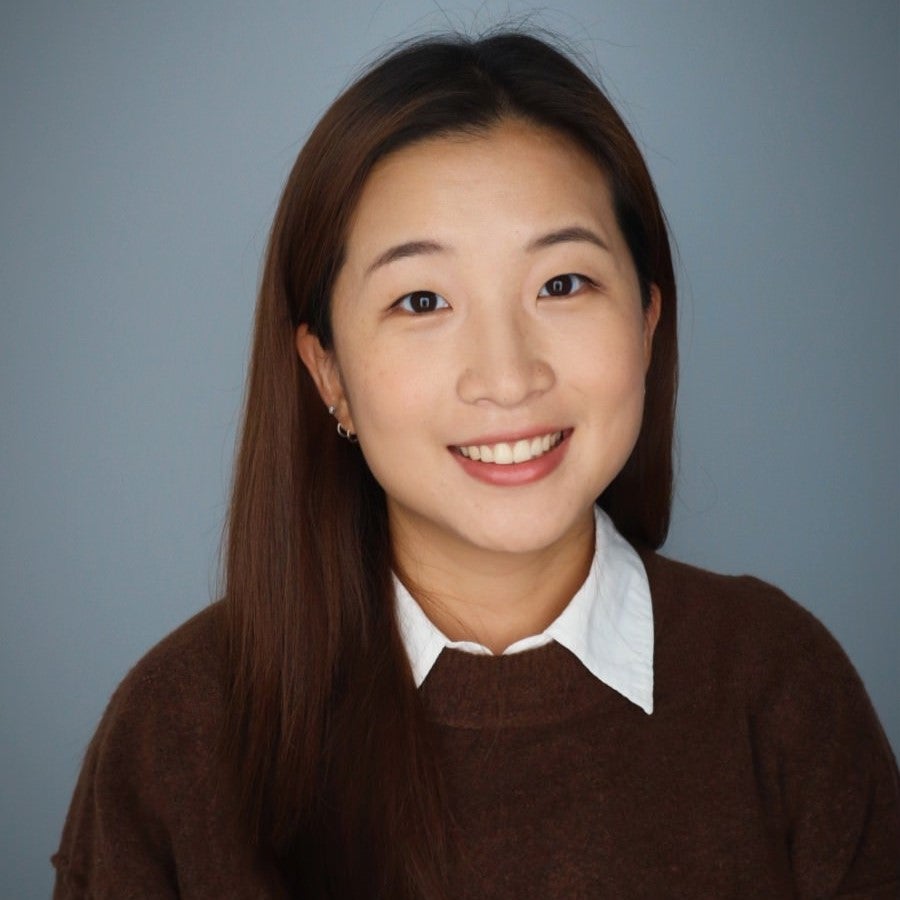
The goals were twofold: to understand how older adults in East Boston perceive social connections, support, and belonging, and to use this insight to shape future programming, strengthening social bonds and fostering a greater sense of community.
The participants, primarily women over 75 who had lived in East Boston for more than 30 years, took part in two focus groups—one in English and one in Spanish, with five individuals each.
Discussions revealed that 70% of participants often felt joyful, and 60% felt at home in their neighborhood. One participant praised the neighborhood’s diversity, saying, “I have a nice neighborhood. A lot of people are from Brazil and the Dominican Republic, and we get along real fine.” Another participant emphasized the importance of the Active Adults program, noting,
Since I stopped working, I didn’t know where to start. Now I feel better because I have friends.

However, challenges emerged.
20% of respondents reported feeling lonely daily.
These findings echo a broader survey by MassInc in May 2023, which found that 19% of East Boston residents felt lonely daily, with 27% often feeling out of place in their neighborhood.
Several factors contributed to this loneliness. Of the 10 participants, 80% lived alone, and 70% were widowed or divorced. Many reported feelings of loss as spouses, friends, and pets passed on. One participant said, “I feel disconnected. I have no friends since I retired. My children moved to another state.” Another noted, “People do not care anymore. They don’t say hello,” reflecting a perceived shift in community dynamics. Additional challenges included the loss of local stores, lack of transportation for seniors, and language barriers between neighbors. Some participants said they only received support during Active Adults activities.
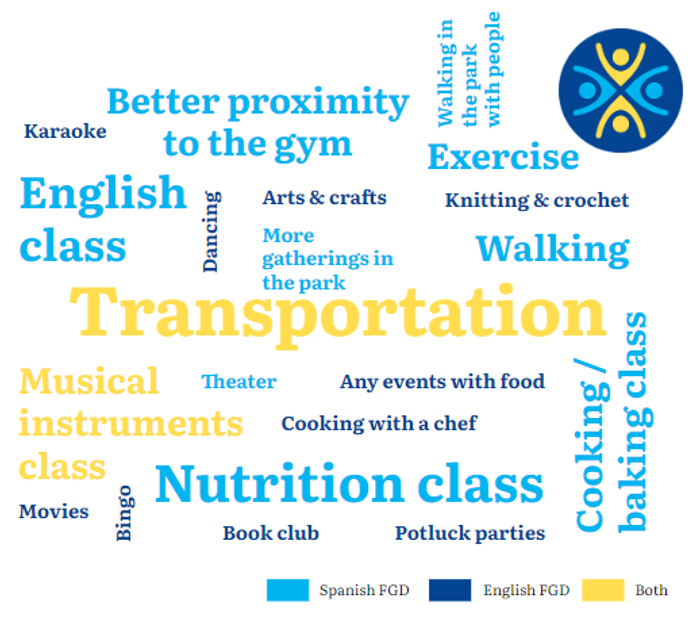
When asked about solutions, participants called for more community activities, social opportunities, educational resources, and efforts to promote cultural understanding. The most common request was for improved transportation, which would make it easier for seniors to access social events and services.
Moving forward, the Social Centers plan to adapt their programs based on these insights, with a focus on increasing social engagement, cognitive and physical activities, and initiatives that strengthen community ties. To support this goal, the LKS Center will sponsor an intern for the Social Centers this summer. The primary goal of this internship is to foster a sense of community and connection within the organization and the larger East Boston area by addressing social isolation and destigmatizing loneliness. The intern will play a key role in developing creative and impactful initiatives that enhance staff engagement and joy, ultimately contributing to a more connected workplace and community environment.
The ongoing collaboration between the Social Centers and the LKS Center will be vital in meeting the evolving needs of East Boston’s senior population, fostering a stronger, more connected community where everyone can thrive.
Article written by Rosanna M. Batista, DrPH, former Social Centers Director of Data and Evaluation, and Ayla Fudala, Communications Coordinator, Lee Kum Sheung Center for Health and Happiness, Harvard T. H. Chan School of Public Health
Understanding and Addressing Misinformation About Science
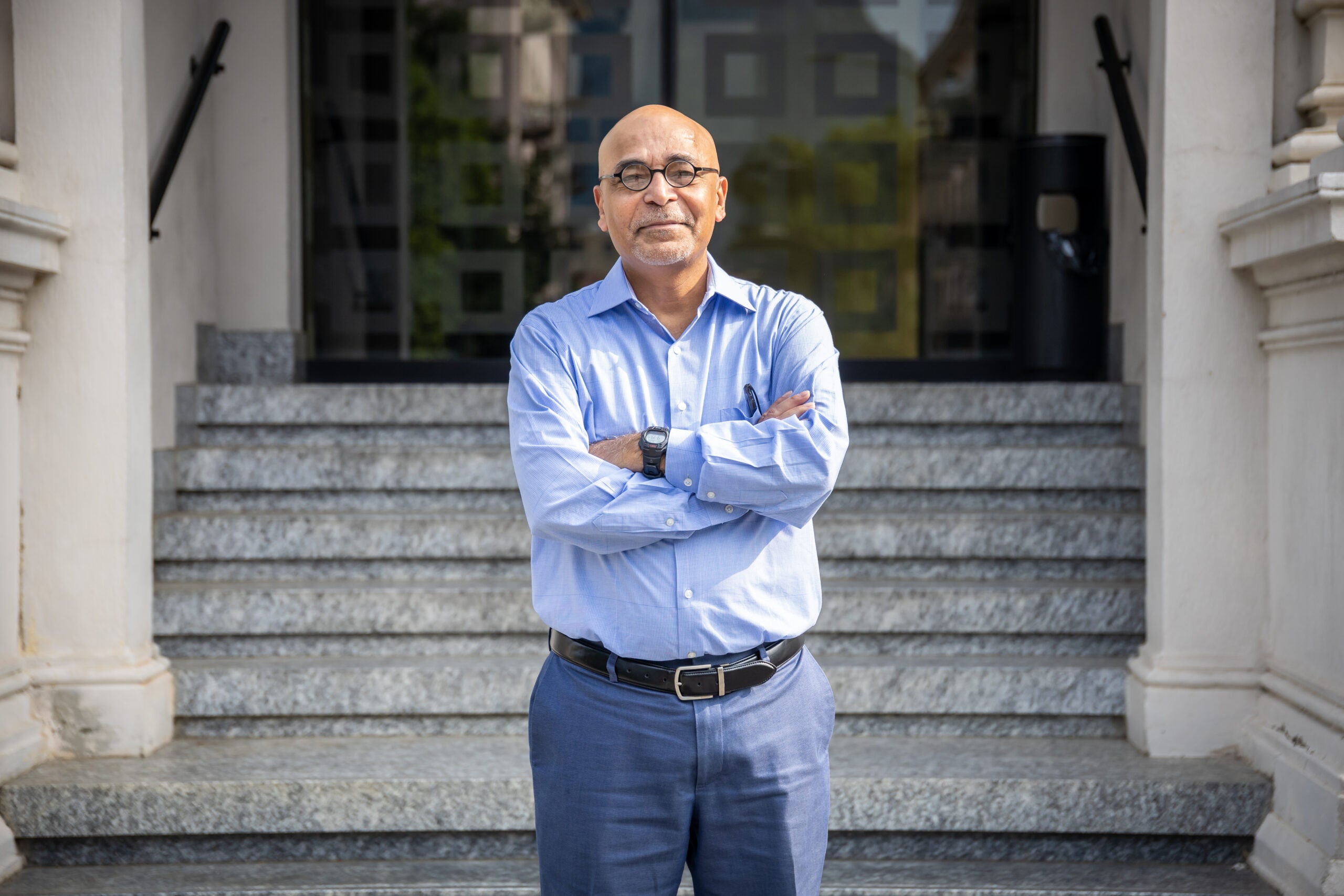
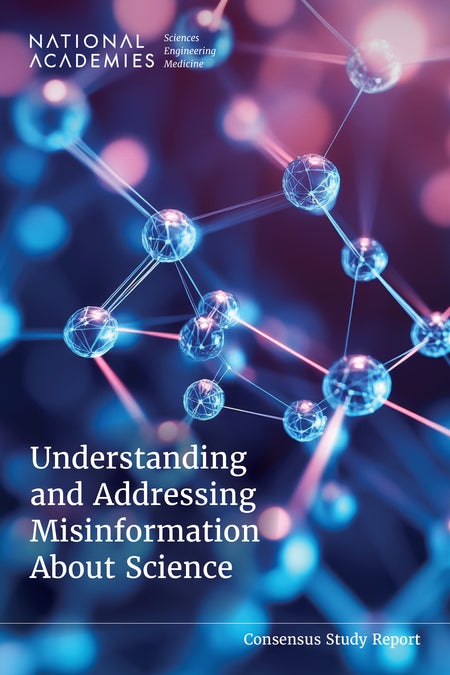
In today’s rapidly evolving information landscape, the spread of misinformation about science has emerged as a significant public health concern. To address this issue, the National Academies of Sciences, Engineering, and Medicine convened a committee of experts to explore the nature, scope, and impact of misinformation in the US and provide guidance on interventions, policies, and future research. Dr. K. “Vish” Viswanath, Lee Kum Kee Professor of Health Communication and Director of the Lee Kum Sheung Center for Health and Happiness, served as the Chair of the Consensus Study Committee for this critical report. The “Understanding and Addressing Misinformation About Science” Report was published in December 2024, and can be read online here.
The Problem: Misinformation about Science
Misinformation about science—defined as “information that asserts or implies claims that are inconsistent with the weight of accepted scientific evidence at the time”—poses a threat at individual, community, and societal levels. When individuals absorb misinformation, it can lead to misbeliefs that impede their ability to make informed personal and community decisions, such as those related to health or responses to natural disasters. This misinformation can also exacerbate existing disparities within marginalized communities, worsening health inequities and discrimination. Moreover, misinformation has the potential to distort public opinion, undermining trust in scientific institutions and authorities.
These impacts were starkly illustrated during the COVID-19 pandemic, when misinformation about the virus and vaccines led to serious repercussions. A study conducted in 2023 estimated that from May 2021 to September 2022, a minimum of 232,000 deaths among unvaccinated adults could have been avoided. (Jia, et al., 2023).
Misinformation about science isn’t a new issue. In fact, the US Food and Drug Administration was established in 1906 to combat widespread misinformation about drugs and food safety. However, the current information ecosystem, particularly with the rise of online platforms, has exacerbated the spread of misinformation. Social media applications, large search engines, and various websites have reshaped information and communication dynamics, making it challenging for the public to discern scientific expertise and the credibility of information sources. This is particularly concerning during crises when public uncertainty peaks—such as during the Covid-19 pandemic— increasing the potential for misinformation to thrive.
Barriers to accessing reliable scientific information further exacerbate this problem. When accurate information is unavailable, individuals resort to whatever sources they can find, often encountering misinformation. This situation is compounded when scientific information is restricted, limited to certain languages, or culturally irrelevant.
Solutions: Addressing Misinformation and Providing Accurate Information
Addressing misinformation requires a multifaceted and proactive approach. The report suggests the following solutions:
- Monitoring Misinformation:
- Continuous monitoring of the information ecosystem is essential to track and document the origins, spread, and impact of misinformation across platforms. This effort can help mitigate the influence of misinformation and inform effective responsive strategies.
- Providing Credible Information:
- The report suggests establishing an independent, non-partisan consortium to identify and curate high-quality science information, ensuring broad access to information of public interest.
- Ensuring availability and access to accurate science information in times of “Information voids” on scientific topics of interest to people.
- While social media platforms contribute to the spread of misinformation, they also present opportunities to enhance the dissemination of quality science information. Leveraging these platforms can help counteract misinformation by increasing the visibility of credible and accurate scientific content.
- Enhancing journalism capacity is another critical area. Strengthening the media’s ability to report on science, especially during times of crisis, can ensure that the public receives reliable and accurate information.
- Community-based efforts are crucial in fighting misinformation. Local organizations, such as businesses, non-profits, and faith groups, are actively working to improve access to credible science information. The report suggests supporting these initiatives to boost their impact.
In conclusion, effectively addressing misinformation about science is essential for safeguarding public health. This report underscores the need for a strategic approach to tackle this urgent issue. By implementing continuous monitoring, enhancing access to accurate information, leveraging social media for disseminating credible science, and bolstering journalism and community-based efforts, we can mitigate the harmful impacts of misinformation.
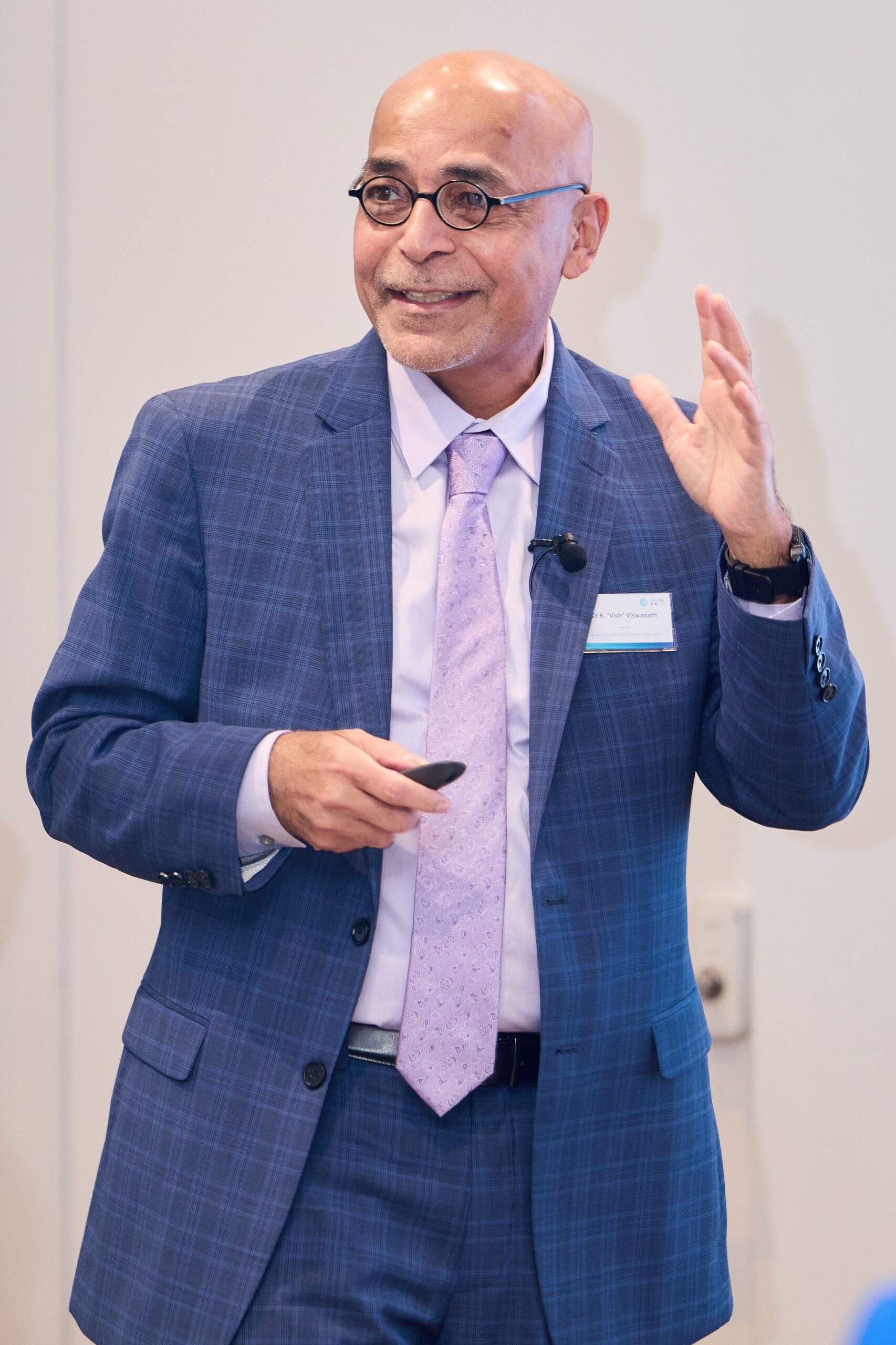
At the Lee Kum Sheung Center for Health and Happiness, we are dedicated to translating science into practice and policy. We strive to provide and promote evidence-informed information on well-being –physical, psychological and social, to address information voids and promote easier access. We achieve this through a variety of methods: hosting seminars and symposia with experts on critical topics, both in person and online, to reach global audiences; partnering with community-based organizations to build capacity and promote well-being information; working with Harvard Chan School students to offer science-informed well-being workshops for the community; and utilizing social media and podcasts to disseminate recent scientific findings.
Under Dr. Viswanath’s leadership, both in this report and through his role at the Center, we aim to empower individuals and communities with the scientific knowledge and tools necessary to make informed decisions and foster a more knowledgeable and resilient society.
Last Updated
Featured in this article
Inaugural Chester Pierce Symposium: Well-being in the Face of Adversity
On November 12, 2024, the inaugural Chester Pierce Symposium was held, bringing together leading voices from academia, business, and activism to explore the theme “Well-being in the Face of Adversity.” This event honored the legacy of Dr. Chester Pierce, a pioneer in psychiatry, civil rights, and social justice.
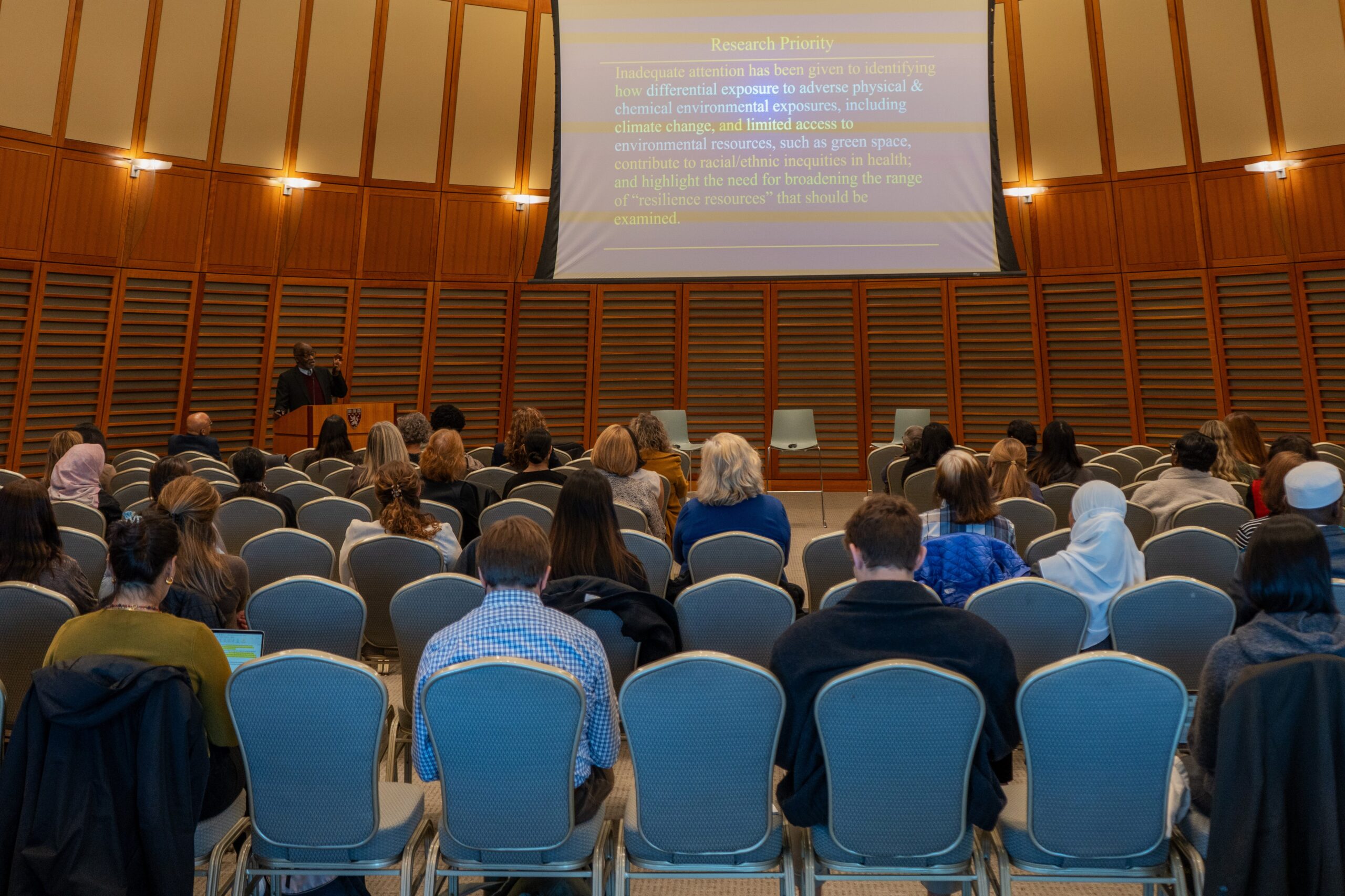
Pierce was the first African American to graduate from the Massachusetts General Hospital Psychiatry Residency Program. He later became a professor of psychiatry at Harvard Medical School and of education at Harvard University, serving as the chief of psychiatry at Massachusetts General Hospital and as a psychiatrist at MIT for nearly 25 years. Pierce also served on the faculty of the Harvard T.H. Chan School of Public Health, educating for 14 years in the Department of Health and Social Behavior, today called the Department of Social and Behavioral Sciences (the home department of the Lee Kum Sheung Center). The Chester Pierce Symposium is envisioned as an annual gathering to confront timely and critical issues. The 2024 theme, “Well-being in the Face of Adversity,” was selected to address growing societal challenges, including systemic racism, political polarization, and environmental crises.
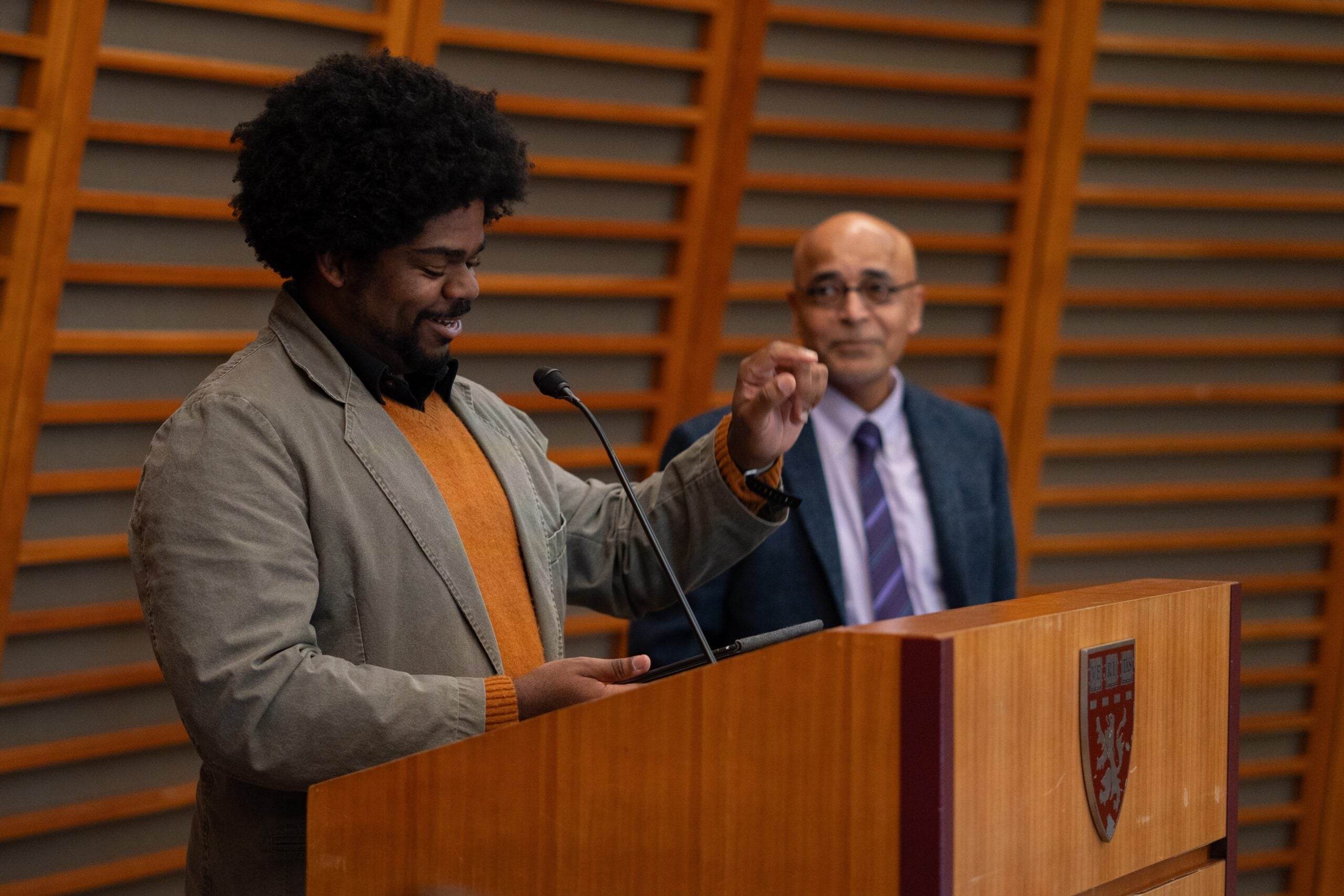
The day’s structure included a keynote lecture and three dynamic panel discussions. Speakers were introduced by Emry Ray Breedlove, Harvard Chan School MPH ’24 (pictured right, alongside Center Director Dr. K. “Vish” Viswanath). Opening remarks were given by Dean Jane Kim, followed by an introduction by Director Viswanath, who announced,
Today is about empowerment, what we can do as a society to foster resilience. We want to go beyond individuals and focus on larger systems, larger conditions in understanding and fostering resilience.
Keynote Lecture: Racism and Health – Understanding Its Threats, Mobilizing Defenses
Following Director Viswanath’s remarks, Dr. David Williams delivered a powerful keynote lecture exploring the intersection of racism and health. Williams serves as the Florence Sprague Norman and Laura Smart Norman Professor of Public Health in the Department of Social and Behavioral Sciences at the Harvard Chan School, as well as Professor of African and African American Studies in the Faculty of Arts and Sciences.
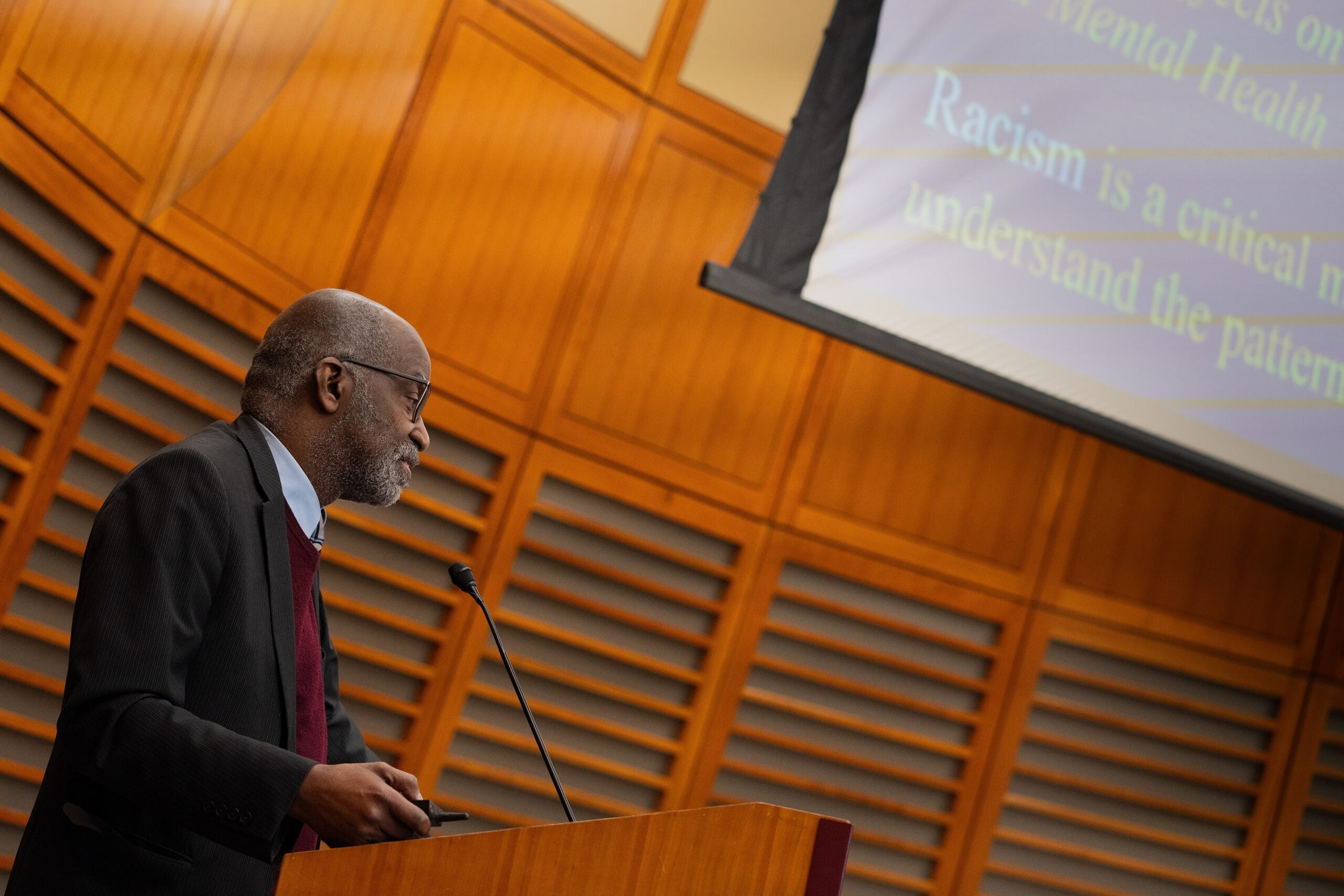
Williams highlighted the stark realities of racial health inequities in the US, underscoring the message with two shocking statistics: 203 Black people die prematurely in the US every day due to racial health inequities; and Black children are 3x more likely to lose their mother by age 10. Williams pointed to socio-economic factors, systemic segregation, and pervasive racism as the root causes of these inequities, leading to significant differences in neighborhood resources, healthcare access, and financial stability between Black and White communities. Despite increasing awareness and civil rights activism, he noted that income disparities and life expectancy gaps between Black and White Americans have remained consistent over the last several decades. Williams referenced Pierce, who introduced the concept of microaggressions. Williams defined them in the context of racism as “assaults to black dignity [that] are incessant and cumulative.” This everyday discrimination is linked to mental and physical health issues, including but not limited to high blood pressure, poor sleep, and elevated suicide risk. Williams proposed a multifaceted approach to address these profound inequities, beginning by raising awareness.
Most Americans, data reveals, do not know that inequities in health exist. So we need to raise awareness levels. We need to develop political will. And we need to build empathy.
He emphasized the need for educational strategies aimed at reducing prejudice and raising awareness, which are vital in changing public perceptions and behaviors. He argued for the necessity of creating “communities of opportunity” by reducing childhood poverty, enhancing income and employment opportunities, and improving neighborhood and housing conditions. He suggested that building trust between patients and healthcare providers by diversifying the workforce, particularly by increasing the presence of Black doctors, can improve healthcare experiences and outcomes for Black patients. Williams concluded by referencing a quote from Robert F. Kennedy, stating, “It is my hope that each one of us today resolve that going forward we will be a tiny ripple of hope. Together, we can sweep down the mighty walls of oppression and resistance.”
Panel 1: Resilience in Times of Adversity: Institutions, Individuals, and Community Strength
The first panel asked the question, “How can individuals, institutions, and communities foster resilience amidst challenges like social tensions and systemic discrimination?” The session was moderated by Dr. Brittney Francis, a research scientist at the FXB Center for Health and Human Rights at the Harvard Chan School, and featured Dr. Nancy Michael, Director of Education and Co-Director of the Neuroscience and Behavior major at the University of Notre Dame, and Julia Hotz, journalist and author of The Connection Cure: The Prescriptive Power of Movement, Nature, Art, Service, and Belonging.
In the discussion, Michael explained that on a physiological level, resilience is the body’s ability to flexibly recover and reinstate autonomic balance after stress, involving nervous and endocrine system interactions. She argued that resilience should be about “bouncing forward” rather than just returning to one’s previous state, highlighting how social support and resources can help individuals not only recover from adversity but also grow and improve beyond their past selves. She emphasized the importance of translating science to the public, arguing that “Knowledge doesn’t change anything unless we’re enacting it in some way.” Michael puts this principle into action with her work at the Self-Healing Communities of Michiana nonprofit, using community education on neuroscience to address and treat trauma.
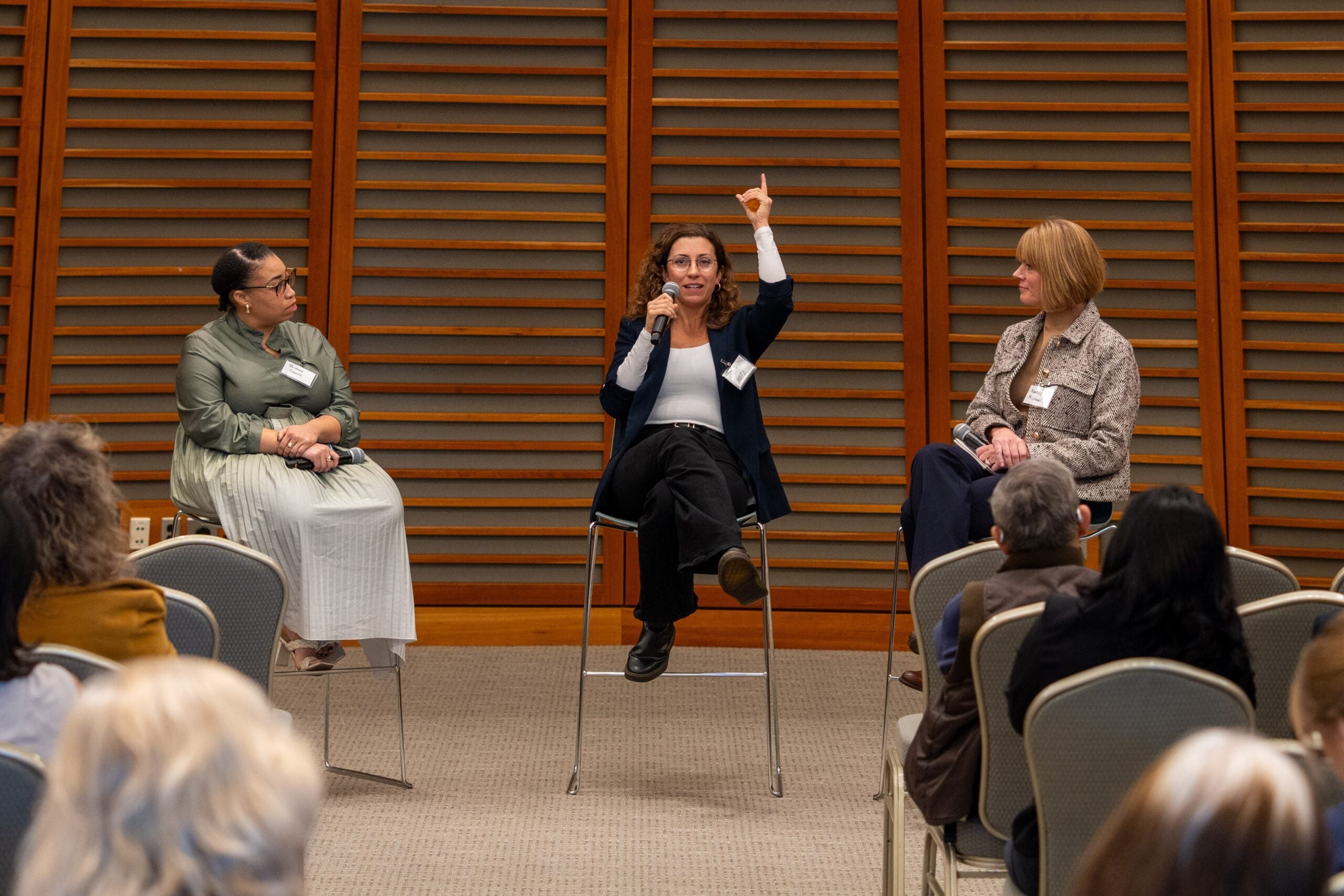
Hotz explained that resilience should be understood as a community-driven process, arguing that “If the stressor is social in nature, the medicine should be too.” She went on to introduce the concept of social prescribing, which involves recommending community engagement activities as part of medical treatment to combat social isolation and improve community health. “There are five types of social prescription,” Hotz explained. “My book focuses on movement, nature, art, service, and belonging, because we evolved to sort of spend our time in these ways.” She argued that health insurance companies should cover social prescriptions, suggesting that investing in community activities for policyholders could ultimately save these companies money. For instance, she pointed to Massachusetts, which recently introduced the nation’s first statewide arts prescription solution. This initiative involves over 300 arts and cultural partners working alongside hospitals and insurers. Both panelists emphasized the importance of social interactions in improving health outcomes and fostering resilience.
Panel 2: Flourishing Amidst Climate Change: Promoting Well-Being and Social Justice
The second panel asked the question, “How can communities promote well-being and social justice amidst the challenges of global climate change?” The session was moderated by Dr. Christie Denckla, Assistant Professor of Social and Behavioral Sciences at the Harvard Chan School, and featured Dr. Elizabeth Pinsky, psychiatrist, pediatrician, and Associate Director for Advocacy at the Massachusetts General Hospital Center for Environment and Health, and Heather White, founder of the nonprofit One Green Thing and author of books such as Eco-Anxiety: Saving Our Sanity, Our Kids, and Our Future.
Both Pinsky and White discussed eco-anxiety and its complex relationships with climate change. Pinsky emphasized that, rather than being a pathology, eco-anxiety is a legitimate response to environmental issues, stating,
Anxiety is adaptive. It is what we need to identify an oncoming threat and respond to it… And in the case of eco-anxiety, it’s more than just a necessary emotion. I would argue that it’s a moral one.
Pinsky explained how this anxiety can spur collective action and social connection, vital for coping with climate-related stress. Pinsky then discussed the link between climate change and inequity, beginning with the observation that “the countries that burn the most fossil fuels are not the countries that are experiencing the greatest impact.” This inequity spans generations, with future generations bearing the consequences of today’s actions, and is also deeply racial. Emphasizing this point, she stated that “climate change is racism manifested,” and highlighted environmental Hop Hopkins’ insight: “You can’t have climate change without sacrificing. You can’t have sacrifice zones without disposable people. You can’t have disposable people without racism.” Furthermore, she pointed out that climate change worsens existing inequities in infrastructure, heat, and air quality, functioning as a “threat multiplier.”
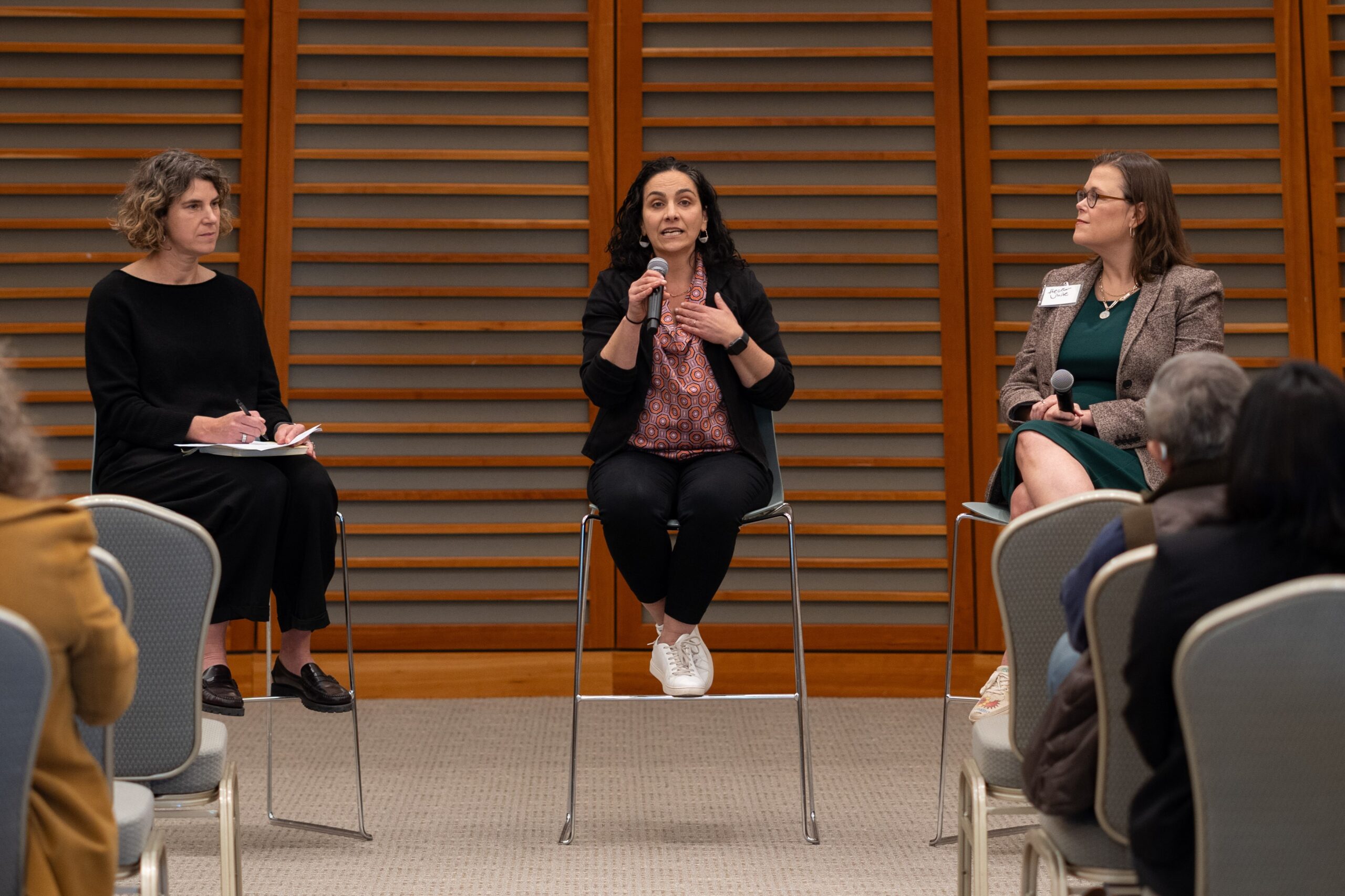
White reiterated Pinsky’s point about the intergenerational inequity of climate change, referencing a study by Lewandowski, et al. (2024), stating: “Of 16,000 young people in the United States, 85% experience eco anxiety, and more than half do not want children of their own because of climate change.” She went on to explain that most carbon pollution has occurred since 1990, and highlighted that younger generations, including her own descendants, will face greater climate challenges than she has, concluding that “that is an intergenerational call to action for all of us.”
But how can we make a difference when the problem seems so overwhelming? As White explained, “sometimes the burden of individual action can be a barrier to systemic or collective action.” The best way to combat this issue, she argues, is by giving people a sense of agency, and connecting their activism with their identity. To this end, she created the “Service Superpower Assessment“, an online quiz which sorts takers into seven archetypes, highlighting their unique strengths and giving them recommendations on how to take action and act as “culture change agents” in their communities and families. She concluded with a call to action, asking:
Who are you? How can you be involved in the climate movement, which is the biggest challenge of our lifetime? Everyone is welcome. Everyone is needed.
Panel 3: Happy in the Workplace: Cultivating Positive Work Experiences through Innovation and Leadership
The third and final panel asked the question, “What policies can managers implement to create and maintain a healthy, happy workplace?” The session was moderated by Dr. Erika Sabbath, Associate Professor at Boston College School of Social Work and Co-director of the Harvard Center for Work, Health, and Wellbeing. It featured Dr. Glorian Sorensen, Research Professor of Social and Behavioral Sciences at the Harvard Chan School and Founding Director for the Harvard Center for Work, Health and Well-being, as well as Jonathan Isaacson, Chairman and CEO of The Gem Group.
Sorensen began by emphasizing the potential of work to be a significant source of happiness, purpose, and well-being. She defined “thriving from work” as a state where employees can reach their full potential across work, home, and community life.
Both panelists discussed the rising concern about mental health problems in the workforce. Sorensen cited the 2022 US Surgeon General’s Framework for Workplace Mental Health and Well-being, sharing that, “76% of workers currently report at least one mental health symptom. 84% report working conditions that contribute to poor mental health. And 81% report they’re looking for jobs that would support their well-being.” Isaacson contributed his own first-hand perspective as an employer, stating that, “We’re seeing more issues around mental health than we’ve ever seen before.” He also drew attention to the profound impact of the pandemic on work dynamics, blurring the lines between home and work and exacerbating mental health challenges such as loneliness and burnout.
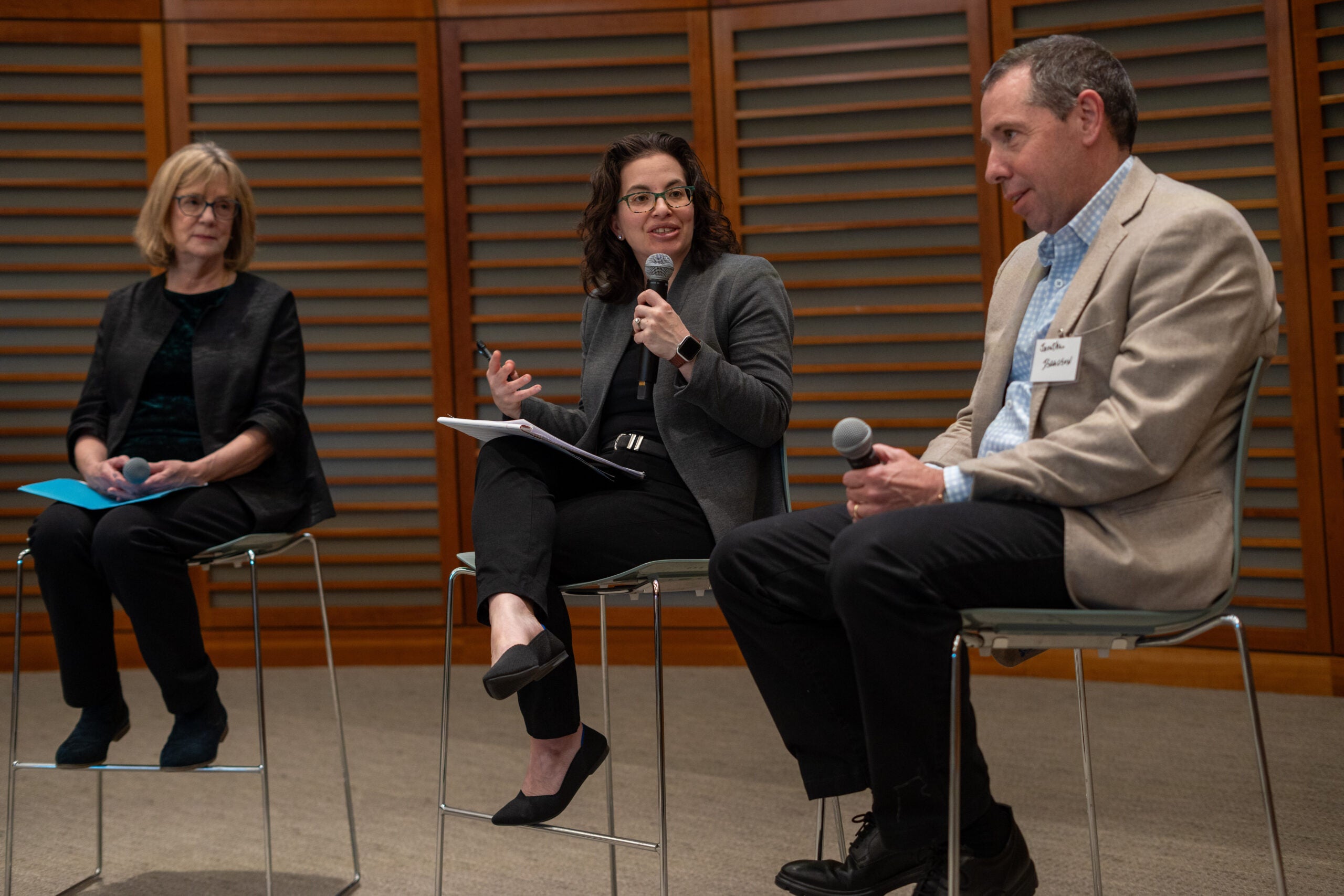
To combat this increasing isolation, Isaacson employs every strategy he can to ensure that his employees thrive. “Larry Summers once said that in the history of humanity nobody ever washed a rented car,” he explained, “and so one of our goals is to make sure that our employees don’t feel like they’re working in the equivalent of a rented car. And the only way to do that is to give people agency.” Isaacson also works hard to cultivate a sense of pride and community within the company, and to build trust between himself and his employees by getting to know them personally. Sorensen argued that this sort of effective leadership is essential in mitigating stress and enhancing workplace culture, directly influencing workers’ mental health and overall job satisfaction. However, she also emphasized the necessity of societal-level changes, such as raising the minimum wage and fostering communal well-being, to address these issues.
Through discussions on mental health, systemic racism, climate challenges, and workplace dynamics, the first Chester Pierce Symposium underscored the importance of collective action and effective leadership. By drawing on diverse voices and experiences, the event fostered a holistic approach to tackling pressing societal issues, aiming to inspire resilient, equitable, and thriving communities. The lessons learned from this gathering echo Dr. Chester Pierce’s life-long commitment to justice and dignity, setting a precedent for future symposia to continue addressing the challenges of our time with empathy and collaboration.

